
The Enchanting La Recoleta: Cochabamba's Timeless Gem
Nestled in the heart of Cochabamba, Bolivia, La Recoleta is a neighborhood that offers an alluring blend of history, culture, and modern charm. This historic quarter, known for its colonial architecture and vibrant local life, is a must-visit for anyone looking to immerse themselves in the rich tapestry of Bolivian heritage. Wander through the cobbled streets and you'll find picturesque plazas, old churches, and colonial houses that transport you back in time. La Recoleta is not just about history; it is also a hub for contemporary arts and culture. The neighborhood is dotted with galleries, artisanal shops, and cozy cafes where you can enjoy a cup of Bolivian coffee while watching the world go by. Don't miss the local markets that burst with colors and flavors, offering everything from fresh produce to traditional crafts. These markets provide a perfect opportunity to interact with the locals and get a taste of daily life in Cochabamba. For those who enjoy a bit of adventure, La Recoleta offers easy access to some of Cochabamba's most beautiful natural landscapes. Take a short hike to the nearby hills for panoramic views of the city and the surrounding valleys. Whether you are a history buff, a culture enthusiast, or an adventure seeker, La Recoleta has something to offer for everyone.
Local tips in La Recoleta
- Visit early in the morning to avoid the crowds and enjoy a peaceful experience.
- Wear comfortable walking shoes as the cobblestone streets can be uneven.
- Try local snacks from street vendors for an authentic taste of Cochabamba.
- Carry some cash as many local shops and markets do not accept credit cards.
- Learn a few basic Spanish phrases to make interactions with locals more enjoyable.
The Enchanting La Recoleta: Cochabamba's Timeless Gem
Nestled in the heart of Cochabamba, Bolivia, La Recoleta is a neighborhood that offers an alluring blend of history, culture, and modern charm. This historic quarter, known for its colonial architecture and vibrant local life, is a must-visit for anyone looking to immerse themselves in the rich tapestry of Bolivian heritage. Wander through the cobbled streets and you'll find picturesque plazas, old churches, and colonial houses that transport you back in time. La Recoleta is not just about history; it is also a hub for contemporary arts and culture. The neighborhood is dotted with galleries, artisanal shops, and cozy cafes where you can enjoy a cup of Bolivian coffee while watching the world go by. Don't miss the local markets that burst with colors and flavors, offering everything from fresh produce to traditional crafts. These markets provide a perfect opportunity to interact with the locals and get a taste of daily life in Cochabamba. For those who enjoy a bit of adventure, La Recoleta offers easy access to some of Cochabamba's most beautiful natural landscapes. Take a short hike to the nearby hills for panoramic views of the city and the surrounding valleys. Whether you are a history buff, a culture enthusiast, or an adventure seeker, La Recoleta has something to offer for everyone.
Iconic landmarks you can’t miss
September 14 Square
Discover the charm of September 14 Square in Cochabamba, a vibrant park surrounded by colonial architecture and rich Bolivian culture.
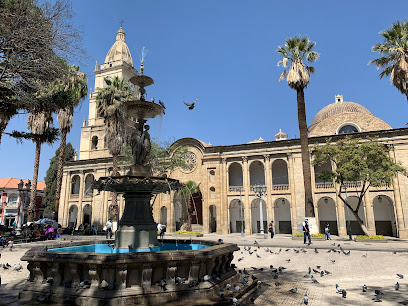
Colon Square
Discover the vibrant heart of Cochabamba at Colon Square, a lush city park rich in culture, history, and local charm.
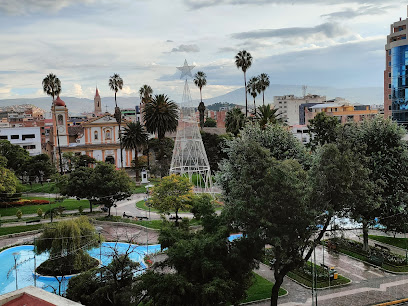
Cristo de la Concordia
Explore the breathtaking Cristo de la Concordia, a towering symbol of peace in Cochabamba, offering stunning views and a profound cultural experience.
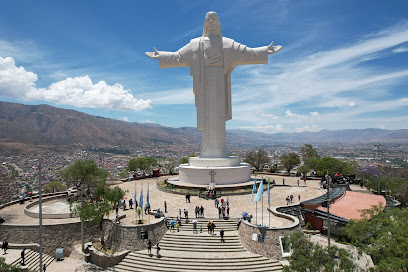
Plazuela Quintanilla
Explore the serene beauty of Plazuela Quintanilla, Cochabamba's urban oasis, where nature meets local culture and vibrant community spirit.
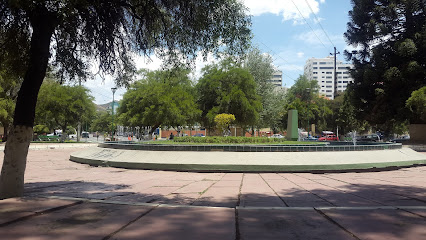
Iglesia de la Recoleta
Discover the serene beauty and rich history of Iglesia de la Recoleta, a must-visit Catholic church in the heart of Cochabamba, Bolivia.
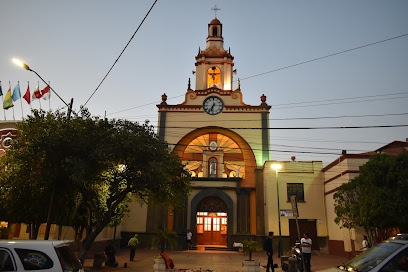
El Boulevard
Discover the serene beauty and vibrant culture at El Boulevard, Cochabamba's beloved park, perfect for relaxation and family fun.
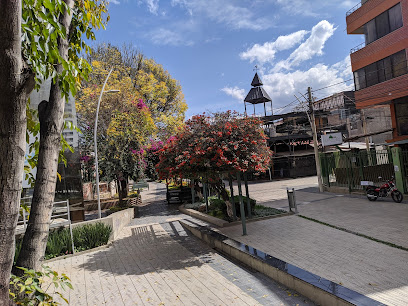
Boulevard de La Recoleta
Discover the lush landscapes and vibrant culture at Boulevard de La Recoleta, Cochabamba's serene park perfect for relaxation and local experiences.
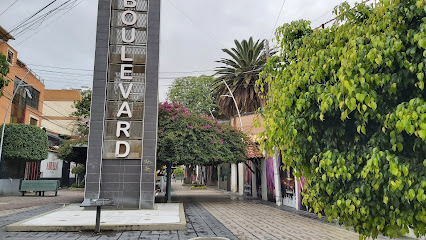
Trotamundos Recoleta Video BAR
Experience the vibrant nightlife of Cochabamba at Trotamundos Recoleta Video BAR, where live music and a festive atmosphere create unforgettable memories.
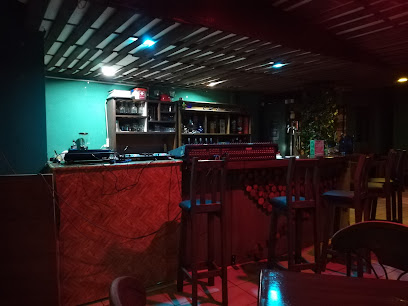
Monumento Blvrd
Explore the serene beauty of Monumento Blvrd, a tranquil park in Cochabamba perfect for relaxation, family outings, and capturing stunning views.
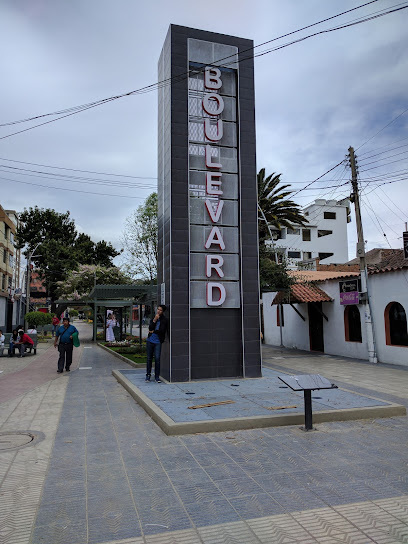
Edificio Recoleta
Experience modern living at Edificio Recoleta, a stylish apartment complex in Cochabamba, surrounded by vibrant culture, dining, and attractions.
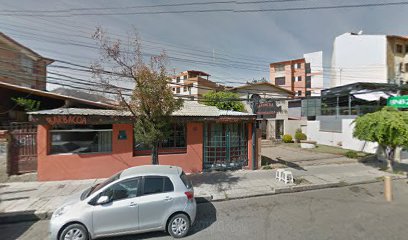
Unmissable attractions to see
September 14 Square
Discover the vibrant heart of Cochabamba at September 14 Square, a cultural hub filled with history, art, and local charm.
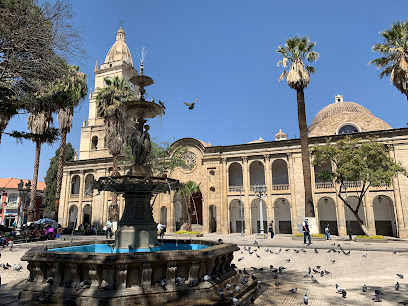
Parque de Educación Vial
Discover the perfect blend of education and recreation at Parque de Educación Vial in Cochabamba, a family-friendly park dedicated to traffic safety.
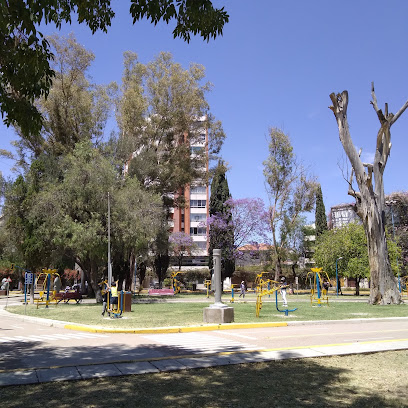
Palacio Portales
Explore the enchanting Palacio Portales in Cochabamba, where history, culture, and breathtaking architecture converge.
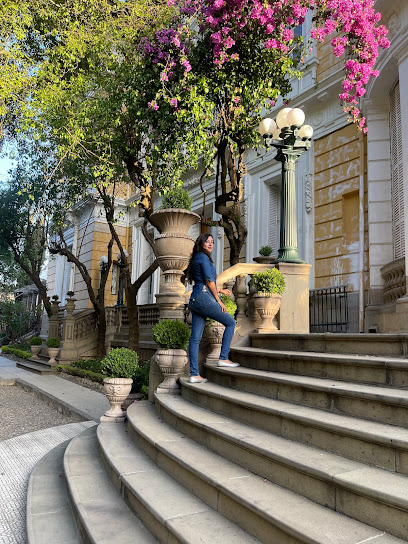
Iglesia de la Recoleta
Discover the architectural beauty and spiritual serenity of Iglesia de la Recoleta, a must-visit Catholic church in Cochabamba, Bolivia.
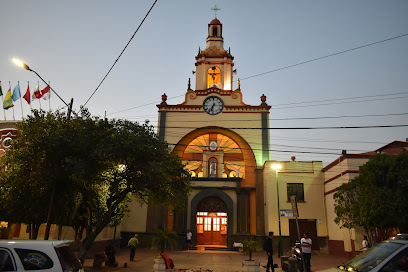
El Pueblito
Discover the vibrant charm of El Pueblito in Cochabamba, Bolivia, a cultural haven for tourists seeking authentic experiences and traditional flavors.
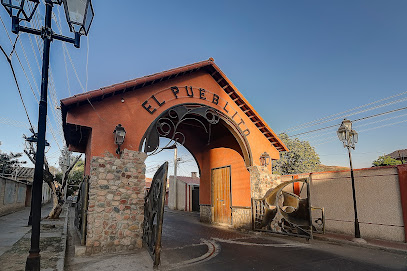
El Boulevard
Discover the beauty of El Boulevard, a serene park in Cochabamba, where nature meets culture in a vibrant setting full of local flavors and entertainment.
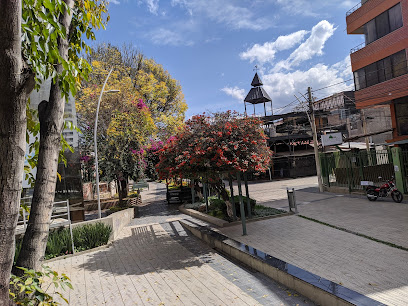
Boulevard de La Recoleta
Discover the serene beauty of Boulevard de La Recoleta, Cochabamba's green heart, perfect for relaxation and cultural experiences.
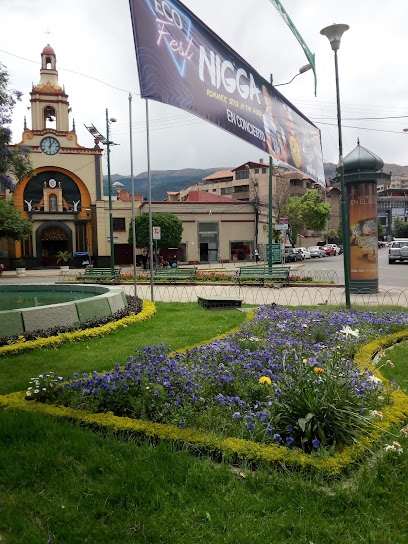
Essential places to dine
Casa de Campo
Discover authentic Bolivian flavors at Casa de Campo in Cochabamba – where tradition meets taste in every dish.
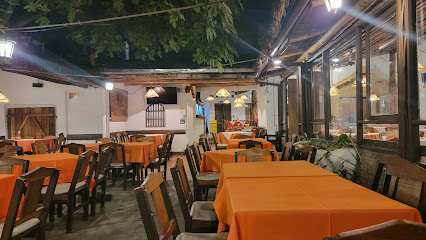
Factory Grill & Bar Cochabamba
Discover Factory Grill & Bar Cochabamba: where American flavors meet Bolivian hospitality for an unforgettable dining experience.
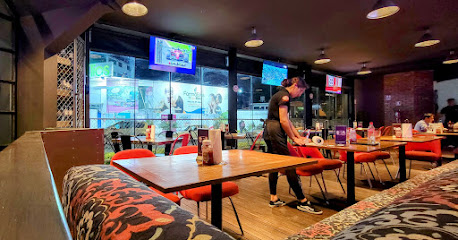
Chifa Lai Lai II
Experience a unique blend of Chinese and Bolivian flavors at Chifa Lai Lai II in Cochabamba - a must-visit for food lovers.
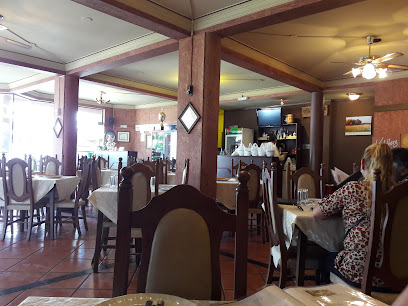
Vinoppolis
Discover Vinoppolis in Cochabamba: A premier dining destination blending traditional Bolivian cuisine with modern elegance.
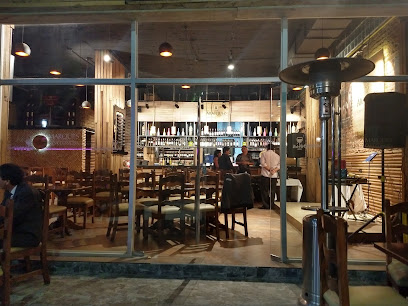
Roast & Roll
Discover culinary excellence at Roast & Roll in Cochabamba—where traditional Bolivian flavors meet modern dining.
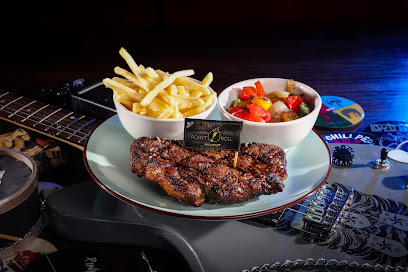
Restaurante EL OTRO LUGAR
Discover authentic Bolivian flavors at Restaurante EL OTRO LUGAR in Cochabamba, where every meal tells a story of tradition and taste.
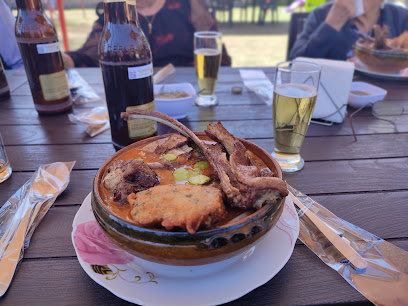
Le Bon Resto Bar
Savor the essence of Bolivian cuisine at Le Bon Resto Bar in Cochabamba—where local flavors meet vibrant ambiance.
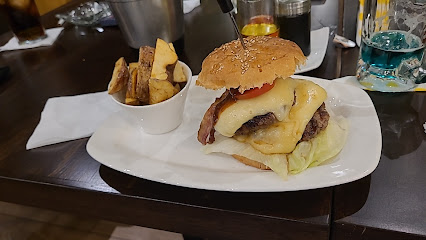
Kaleka Poke Bowls Cochabamba
Experience delicious Hawaiian poke bowls crafted with fresh local ingredients at Kaleka Poke Bowls in Cochabamba.
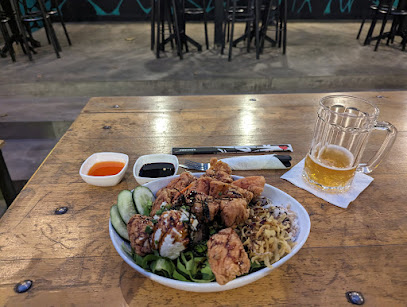
La Castañeda
Savor the rich flavors of Bolivia at La Castañeda, where culinary tradition meets modern dining in the heart of Cochabamba.
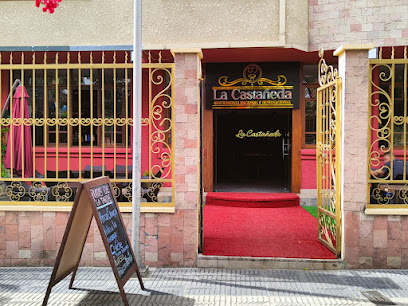
LA ÑATITA
Discover authentic Bolivian cuisine at La Ñatita in Cochabamba – where every dish tells a story.
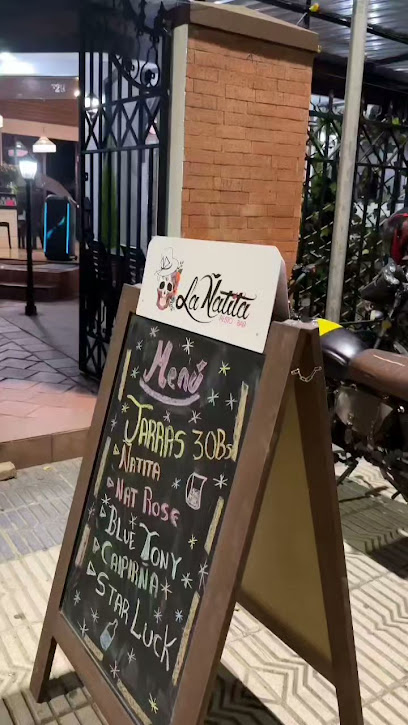
Markets, malls and hidden boutiques
Hupermall
Experience the vibrant shopping scene at Hupermall, Cochabamba's premier destination for shopping, dining, and entertainment.
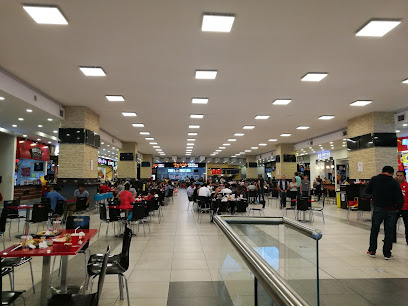
Shopping Sucre
Explore Shopping Sucre in Cochabamba for a perfect blend of shopping, dining, and entertainment in a vibrant Bolivian setting.
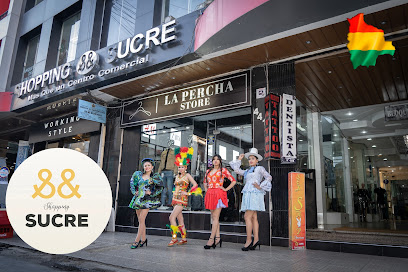
Hoy Hay Café
Discover the flavors of Bolivia at Hoy Hay Café, a gourmet grocery store offering exquisite baked goods, artisanal coffees, and unique teas in Cochabamba.
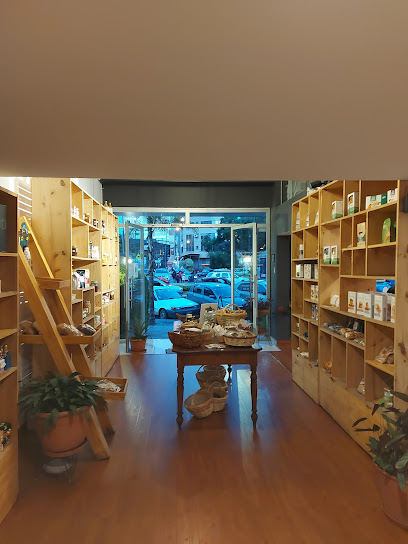
Ayacucho esquina Mejico
Explore the Ayacucho Shopping Mall in Cochabamba for the best in local crafts, delicious Bolivian cuisine, and a vibrant shopping atmosphere.
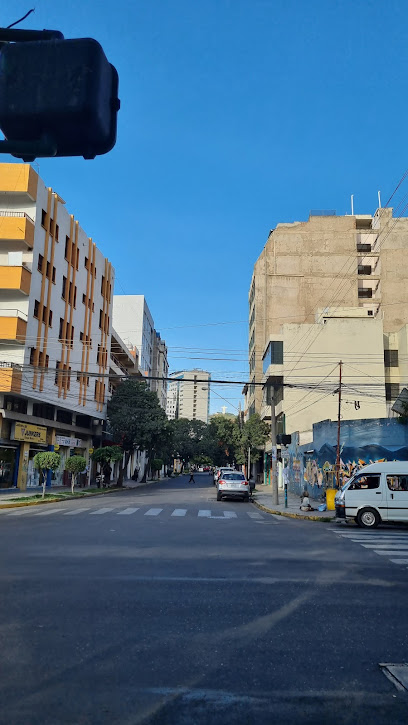
Surtiditos Bolivia
Discover the essence of Bolivia at Surtiditos Bolivia, where local crafts meet vibrant culture in a delightful gift shop experience.
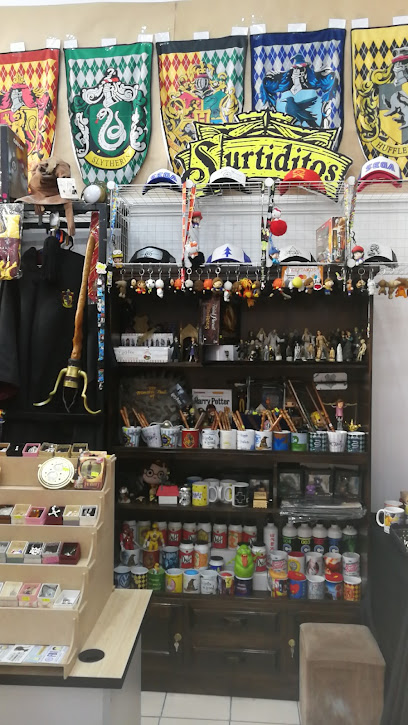
TOP COLLECTION
Explore the latest trends in men's fashion at TOP COLLECTION, Cochabamba's premier destination for stylish clothing and accessories.
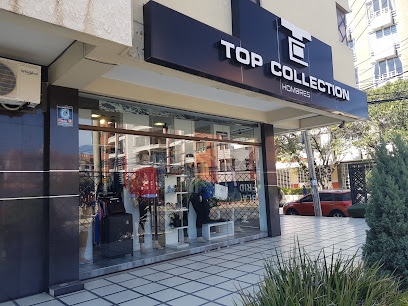
Praya Boutique
Discover unique fashion at Praya Boutique in Cochabamba, where traditional Bolivian style meets modern trends for the perfect shopping experience.

tuc tuc bolivia
Discover stylish clothing and local fashion treasures at Tuc Tuc Bolivia in Cochabamba, a must-visit for every fashion-savvy traveler.
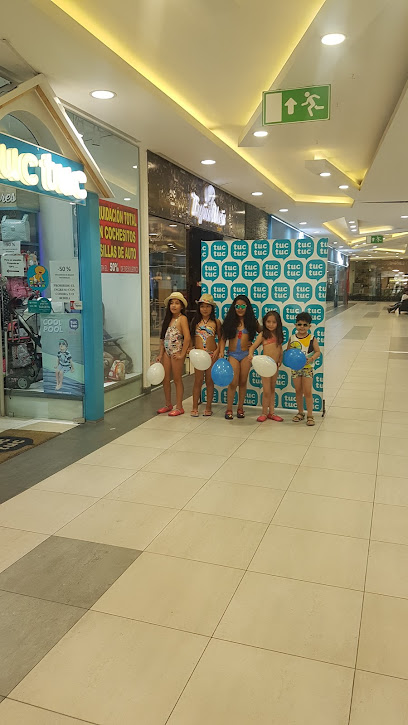
Game shop
Explore an enchanting game shop in Cochabamba with a diverse selection of games and unique gifts, perfect for every visitor.
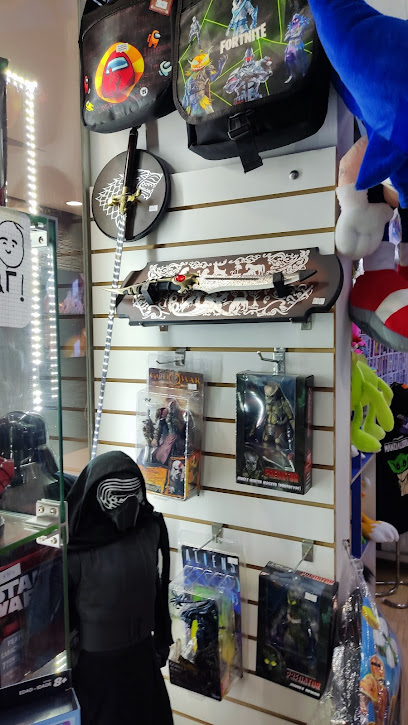
WOOPY Tienda de Regalos
Discover unique gifts and authentic Bolivian handicrafts at WOOPY Tienda de Regalos in Cochabamba's vibrant atmosphere.
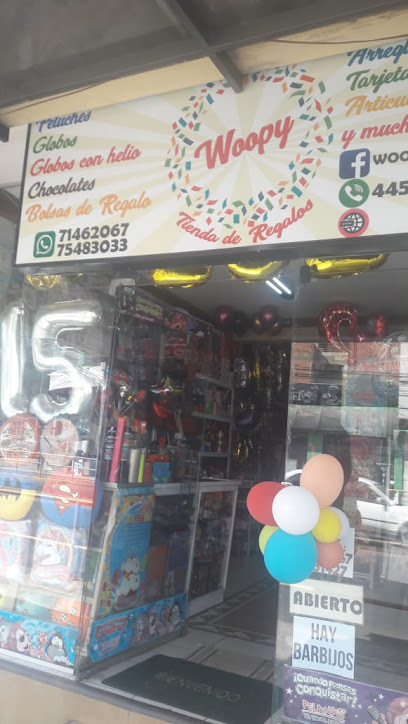
Essential bars & hidden hideouts
Mandarina Bar
Discover the vibrant nightlife at Mandarina Bar in Cochabamba, where great drinks and lively atmosphere await you every night.
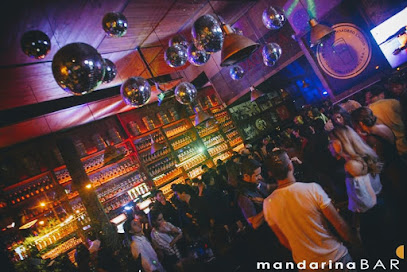
Martina Pub
Discover the vibrant flavors of Bolivia at Martina Pub, a lively tapas bar in Cochabamba offering a delightful culinary experience.
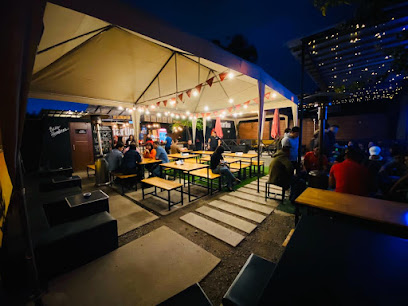
1969 Rock & Bar
Discover the ultimate nightlife experience in Cochabamba at 1969 Rock & Bar, where live music and vibrant energy await.
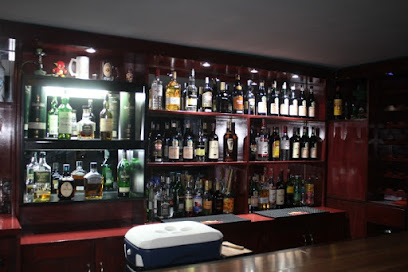
Trotamundos Recoleta Video BAR
Discover the vibrant nightlife and live music scene at Trotamundos Recoleta Video BAR in Cochabamba, where culture and entertainment merge.
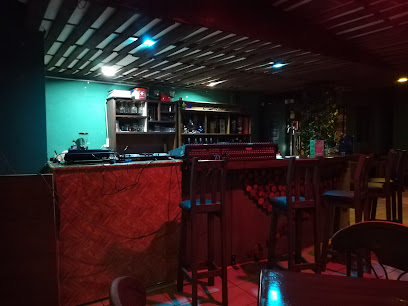
Tren Urbano Bar
Experience Cochabamba's vibrant nightlife at Tren Urbano Bar, where culture, cocktails, and camaraderie come together in a lively atmosphere.
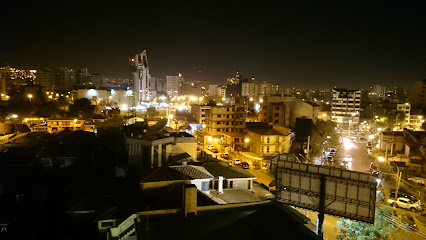
Breaking Bar-Cbba
Discover the lively nightlife at Breaking Bar-Cbba in Cochabamba, known for its vibrant atmosphere and exceptional cocktails.
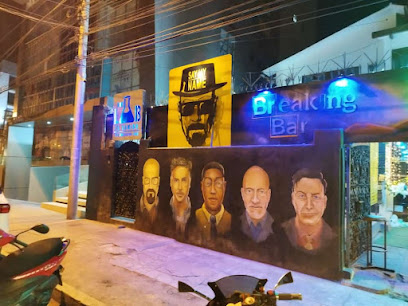
Stone Hall
Discover the heart of Cochabamba's nightlife at Stone Hall, a premier live music bar where rock reigns supreme.
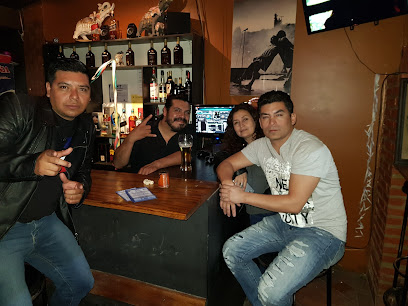
Pausa Café Bar
Discover the vibrant atmosphere of Pausa Café Bar in Cochabamba, a perfect spot for relaxation and cultural immersion through local drinks.
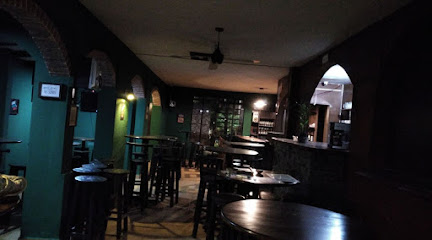
IBIZA LOUNGE
Discover the lively Ibiza Lounge in Cochabamba, where vibrant nightlife meets stunning cocktails in a chic atmosphere.
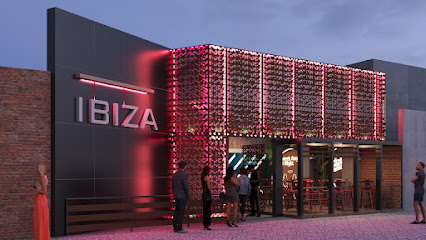
la plataforma pub
Experience the vibrant nightlife of Cochabamba at La Plataforma Pub, where unique cocktails and a lively atmosphere await.
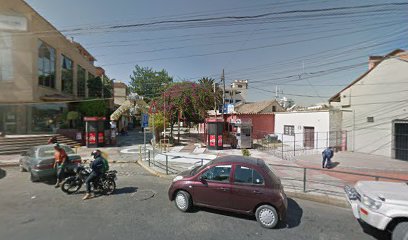
Local Phrases
-
- Hello¡Hola!
[Oh-lah] - Goodbye¡Adiós!
[Ah-dee-ohs] - YesSí
[See] - NoNo
[Noh] - Please/You're welcomePor favor/De nada
[Pohr fah-vor/Deh nah-dah] - Thank youGracias
[Grah-see-ahs] - Excuse me/SorryDisculpe/Perdón
[Dees-kool-peh/Pehr-dohn] - How are you?¿Cómo estás?
[Koh-moh ehs-tahs] - Fine. And you?Bien. ¿Y tú?
[Byen. Ee too] - Do you speak English?¿Hablas inglés?
[Ah-blahs een-glehs] - I don't understandNo entiendo
[Noh ehn-tee-ehn-doh]
- Hello¡Hola!
-
- I'd like to see the menu, pleaseMe gustaría ver el menú, por favor
[Meh goos-tah-ree-ah behr ehl meh-noo, por fah-vor] - I don't eat meatNo como carne
[Noh koh-moh kahr-neh] - Cheers!¡Salud!
[Sah-lood] - I would like to pay, pleaseMe gustaría pagar, por favor
[Meh goos-tah-ree-ah pah-gahr, por fah-vor]
- I'd like to see the menu, pleaseMe gustaría ver el menú, por favor
-
- Help!¡Ayuda!
[Ah-yoo-dah] - Go away!¡Vete!
[Veh-teh] - Call the Police!¡Llama a la Policía!
[Yah-mah ah lah Poh-lee-see-ah] - Call a doctor!¡Llama a un médico!
[Yah-mah ah oon meh-dee-koh] - I'm lostEstoy perdido
[Ehs-toy pehr-dee-doh] - I'm illEstoy enfermo
[Ehs-toy ehn-fehr-moh]
- Help!¡Ayuda!
-
- I'd like to buy...Me gustaría comprar...
[Meh goos-tah-ree-ah kohm-prahr] - I'm just lookingSolo estoy mirando
[Soh-loh ehs-toy meer-ahn-doh] - How much is it?¿Cuánto cuesta?
[Kwan-toh kwes-tah] - That's too expensiveEso es demasiado caro
[Eh-soh ehs deh-mah-see-ah-doh kahr-oh] - Can you lower the price?¿Puede bajar el precio?
[Pweh-deh bah-hahr ehl pree-syoh]
- I'd like to buy...Me gustaría comprar...
-
- What time is it?¿Qué hora es?
[Keh oh-rah ehs] - It's one o'clockEs la una
[Ehs lah oo-nah] - Half past (10)Las diez y media
[Lahs dee-ehs ee meh-dee-ah] - MorningMañana
[Mah-nyah-nah] - AfternoonTarde
[Tahr-deh] - EveningNoche
[Noh-cheh] - YesterdayAyer
[Ah-yehr] - TodayHoy
[Oy] - TomorrowMañana
[Mah-nyah-nah] - 1Uno
[Oo-noh] - 2Dos
[Dohs] - 3Tres
[Trehss] - 4Cuatro
[Kwah-troh] - 5Cinco
[Seenkoh] - 6Seis
[Says] - 7Siete
[Syeh-teh] - 8Ocho
[Oh-choh] - 9Nueve
[Nweh-veh] - 10Diez
[Dee-ehs]
- What time is it?¿Qué hora es?
-
- Where's a/the...?¿Dónde está...?
[Dohn-deh ehs-tah] - What's the address?¿Cuál es la dirección?
[Kwahl ehs lah dee-rehk-syohn] - Can you show me (on the map)?¿Puedes mostrarme (en el mapa)?
[Pweh-dehs mohs-trar-meh (ehn ehl mah-pah)] - When's the next (bus)?¿Cuándo es el próximo (autobús)?
[Kwan-doh ehs ehl proh-see-moh (ow-toh-boos)] - A ticket (to ....)Un boleto (a ....)
[Oon boh-leh-toh (ah ....)]
- Where's a/the...?¿Dónde está...?
History of La Recoleta
-
La Recoleta was established in the late 19th century as a residential neighborhood, influenced by European architectural styles. Its name, which translates to 'the Recollect', refers to the Recollect Franciscan monks who settled in the area, contributing to its early development and spiritual significance.
-
The Convent of La Recoleta, founded in 1771, is a key historical landmark in the neighborhood. It served as a religious and educational center for the Franciscan order and played a crucial role in the spiritual life of Cochabamba. The convent's architecture reflects the Baroque style and has been a witness to the city's evolution over the centuries.
-
In the 20th century, La Recoleta became a focal point for cultural activities in Cochabamba. The neighborhood hosted numerous events, festivals, and gatherings that celebrated Bolivian traditions, music, and art. This cultural renaissance helped solidify La Recoleta's role as a vibrant community hub.
-
Throughout the 20th century, La Recoleta was a backdrop for various political movements. The neighborhood's residents actively participated in protests and social movements advocating for democracy and social justice, reflecting the broader political landscape of Bolivia during periods of change.
-
In recent years, La Recoleta has undergone modernization while efforts have been made to preserve its historical and cultural heritage. The neighborhood is now a blend of traditional architecture and contemporary amenities, attracting both locals and tourists who appreciate its unique charm.
La Recoleta Essentials
-
La Recoleta is easily accessible from other neighbourhoods in Cochabamba. You can take a taxi or a motorcycle taxi (moto taxi) from the city center, which typically costs around 10-15 Bolivianos and takes about 10-15 minutes. Alternatively, local buses also connect to La Recoleta, with routes from major neighborhoods such as Cala Cala and La Cancha. Look for buses with 'Recoleta' displayed on their front windshield.
-
La Recoleta is a walkable neighbourhood, with many attractions within easy reach. If you prefer public transport, local buses and minibuses are available, but they can be infrequent. Taxis and moto taxis are widely used and are a convenient way to travel longer distances. Bicycles can also be rented at various locations in Cochabamba, providing a fun way to explore the area.
-
La Recoleta is generally safe for tourists, but it's important to stay vigilant. Avoid walking alone at night, especially in poorly lit areas. Exercise caution in crowded places and be aware of your belongings. Areas like the outskirts of La Recoleta may be less safe, so it's best to stick to well-populated areas and avoid displaying valuables.
-
In case of an emergency, dial 110 for police assistance or 118 for fire emergencies. The nearest hospital is Hospital del Niño, and there are several clinics in the area. Always carry a copy of your passport and travel insurance details. For minor health issues, local pharmacies are available throughout La Recoleta.
-
Fashion: Do dress modestly, especially when visiting religious sites. Avoid overly revealing clothing. Religion: Do respect local customs. If visiting churches, cover your shoulders and knees. Public Transport: Do give up your seat for elderly passengers. Don't eat or drink on public transport. Greetings: Do greet with a firm handshake and a smile. Don't be overly familiar with strangers initially. Eating & Drinking: Do try local foods and beverages. Don't waste food or refuse food offerings, as it may offend.
-
To experience La Recoleta like a local, visit the local artisan markets for unique handicrafts and traditional foods. Engage with local vendors, who are often eager to share stories about their crafts. Don't miss the stunning views from the Christ of the Concord statue, and take a leisurely stroll through the Parque de la Recoleta for a relaxing experience. Learn a few basic Spanish phrases to enhance your interactions with locals.
Nearby Cities to La Recoleta
-
Things To Do in Sucre
-
Things To Do in La Paz
-
Things To Do in Potosi
-
Things To Do in Santa Cruz de la Sierra
-
Things To Do in Copacabana
-
Things To Do in Uyuni
-
Things To Do in Tacna
-
Things To Do in Puno
-
Things To Do in Arica
-
Things To Do in Tarija
-
Things To Do in Iquique
-
Things To Do in Arequipa
-
Things To Do in San Pedro de Atacama
-
Things To Do in Cusco
-
Things To Do in Antofagasta








